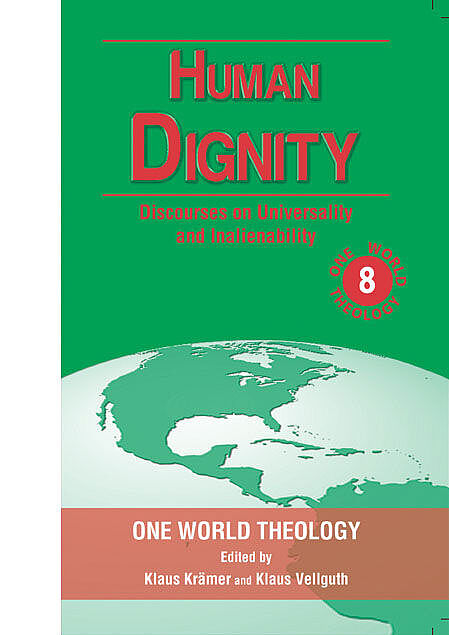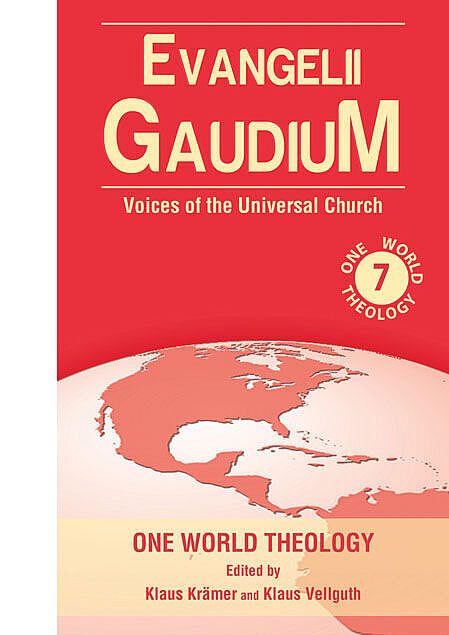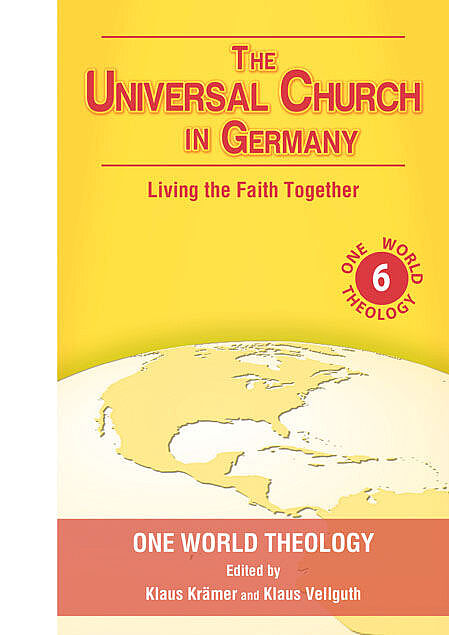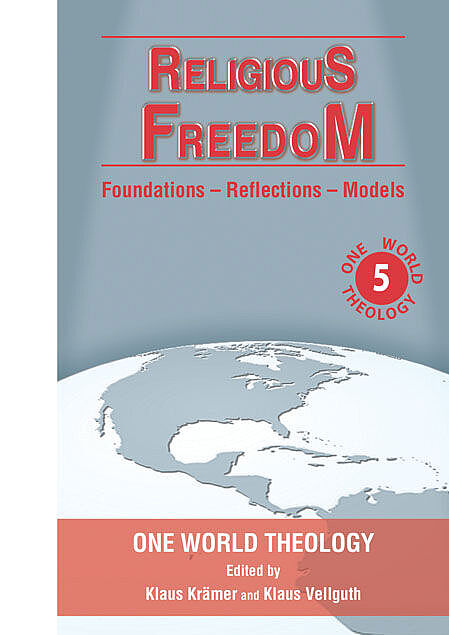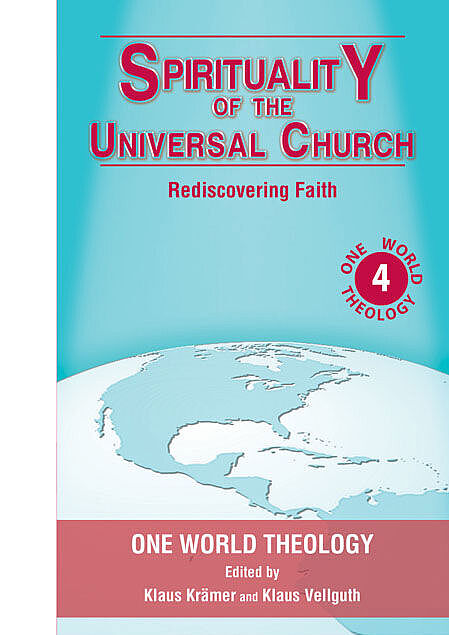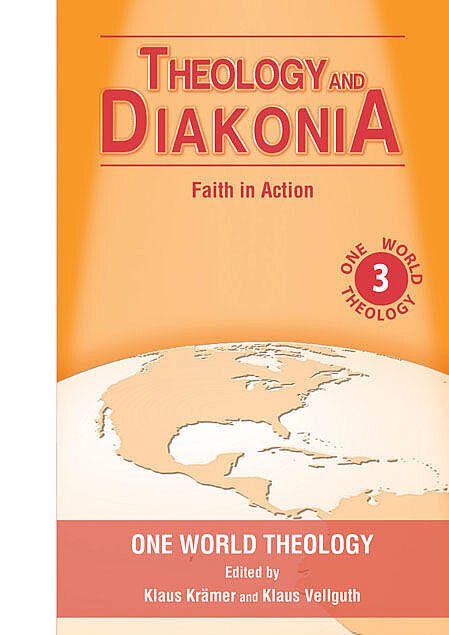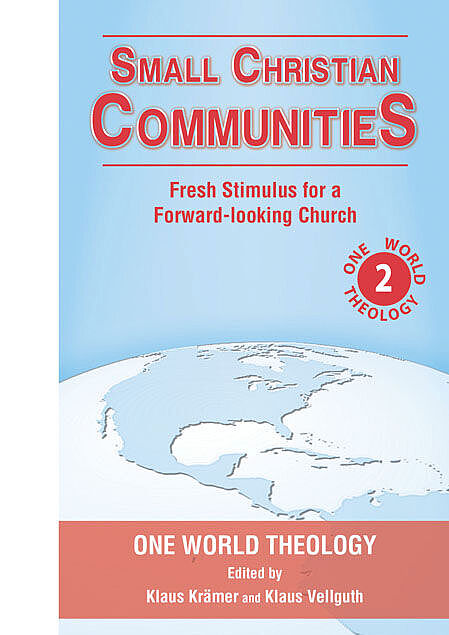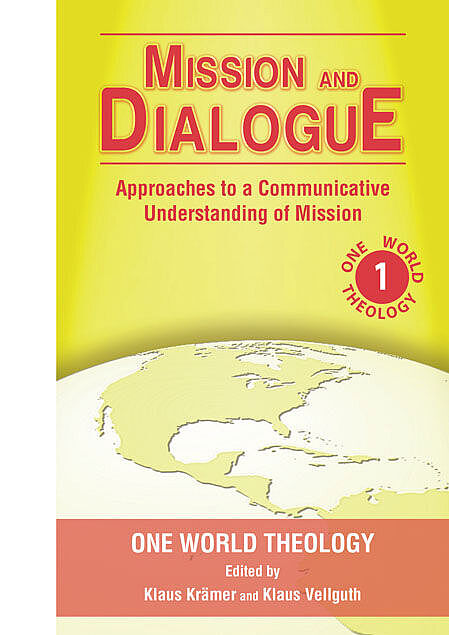
One World Theology
The series One World Theology (OWT) is intended to serve as a universal Church forum. The volumes in the series will provide a platform for an exchange of ideas on theological issues in which representatives of the different continents are invited to present their views on specific topics. The forum aims to foster dialogue between the local churches and contribute to a dialogue among local churches on equal terms.
Theologie der Einen Welt (ThEW)
One World Theology 16: Christian Witness in a Multi-Religious World
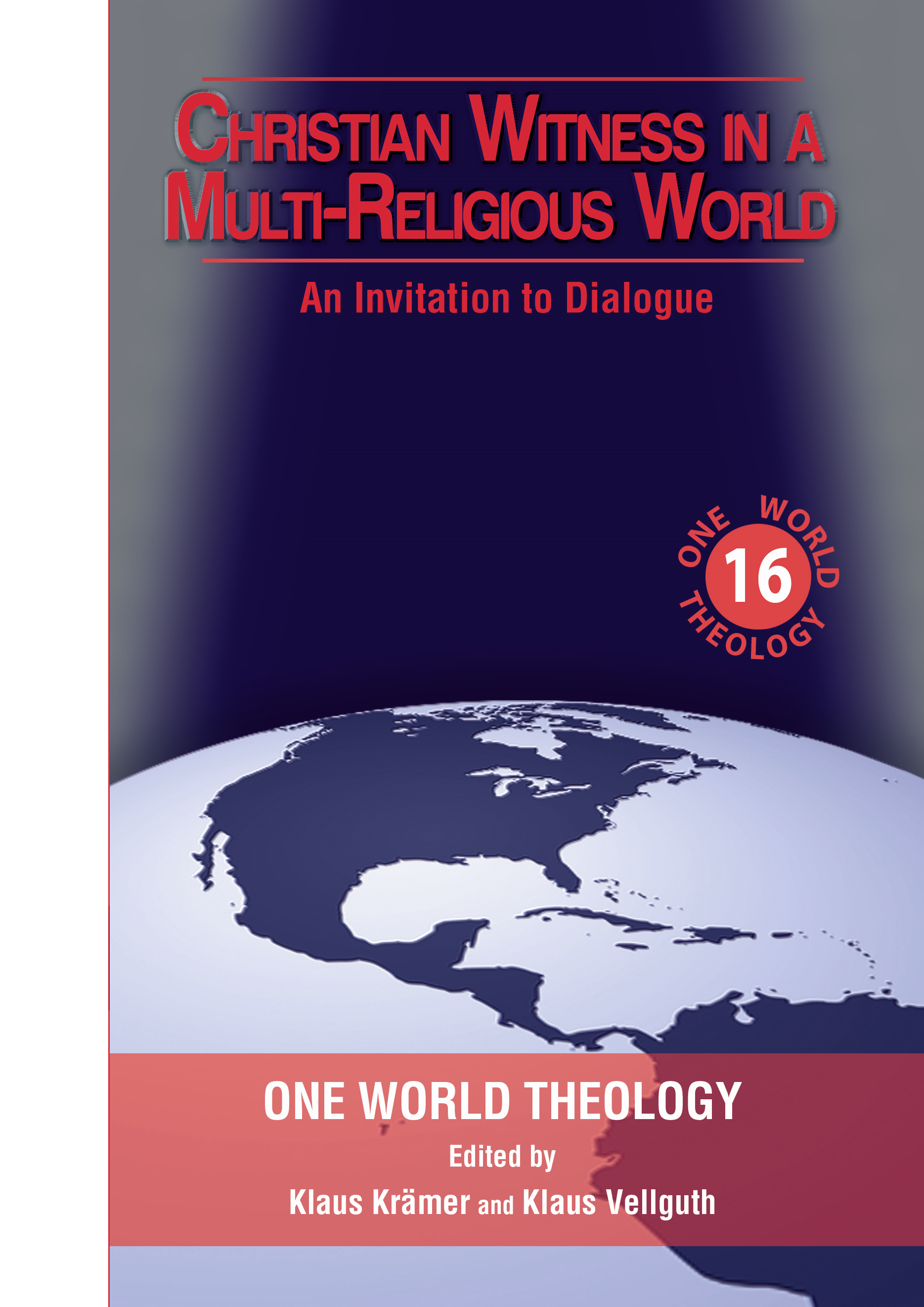
Christian Witness in a Multi-Religious World
From mission to interreligious dialogue: The commitment to the Christian faith and the dialogue with those of other faiths and non-believers face their own challenges in different countries and regions of the world. The contributions from different continents describe the respective multi-religious contexts, explain the meaning and reception of the ecumenical mission document "Christian Witness in a Multi-Religious World", which was jointly signed by the Pontifical Council for Interreligious Dialogue, the World Council of Churches and the World Evangelical Alliance. In addition, the authors describe the path from a missionary stance to interreligious dialogue.
Order Volume 16
Previously published volumes
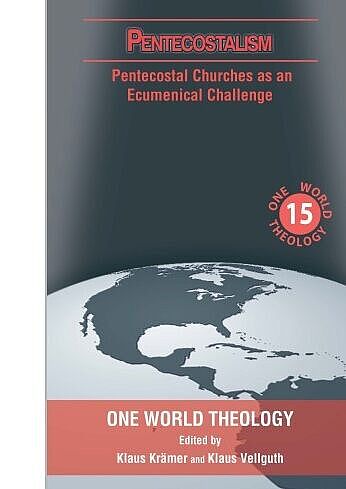
Pentecostal Churches as an Ecumenical Challenge
Pentecostalism as a global movement is associated with significant changes in the Christian world and poses a major ecumenical challenge. Pentecostal churches are among the fast growing worldwide, but it is not just the increasing number of their adherents which calls the “traditional churches” into question. These developments are investigated by the authors from various continents who have contributed to this volume. Among the issues they address are the development of Pentecostalism, fundamental aspects of Pentecostal theology, the fascination of Pentecostalism for Christians, and Charismatic movements within the Catholic Church. In addition they describe from different contextual angles the way in which the Catholic Church has responded to the Pentecostal movements.
Order Volume 15
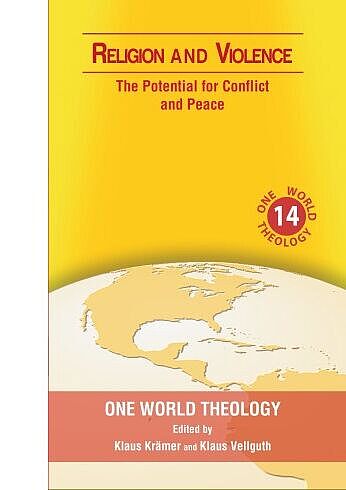
The Potential for Conflict and Peace
Are religion and violence inescapably intertwined? Or is violence often abusively legitimised by religion? Theologians from different continents give differentiated answers from a Christian perspective. The role and function of the Bible's depictions of violence, how violence was legitimised and practised by the church, but also criticised, what the underlying causes of religiously motivated violence are and how violence influences the relationship between the religions. The contributions also describe examples of church peace and reconciliation work that inspire hope for overcoming violence.
Order Volume 14
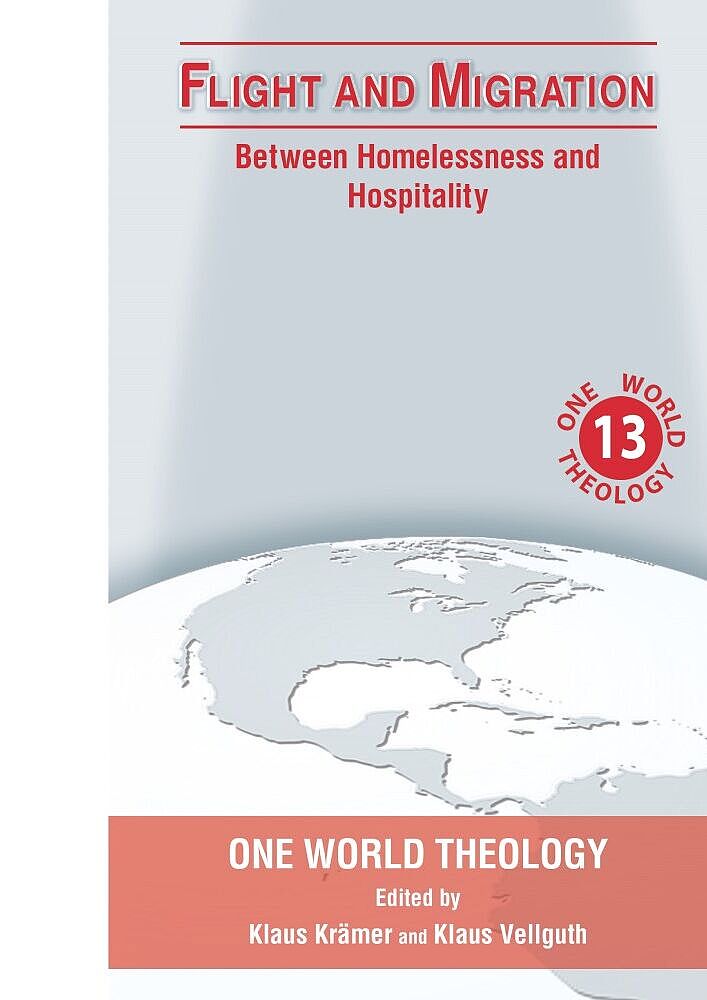
Between Homelessness and Hospitality
Everywhere in the world displaced people are on the move from one country to another. What are the social, pastoral and theological responses to migrants living in precarious circumstances in Europe, Africa, Asia and Latin America? What are the causes of migration and flight? What situations do migrants and refugees face worldwide? What socio-ethical questions does this phenomenon raise? What is the pastoral care response and how is the Church facing up to the challenge? Twenty-one authors from different countries around the globe report on their personal experiences in various regions and present their analyses.
This book places the situation in Europe in the global context of flight and migration. It objectifies the discussion and examines ways and means of dealing constructively with flight and migration both inside and outside the Church.
Order Volume 13:
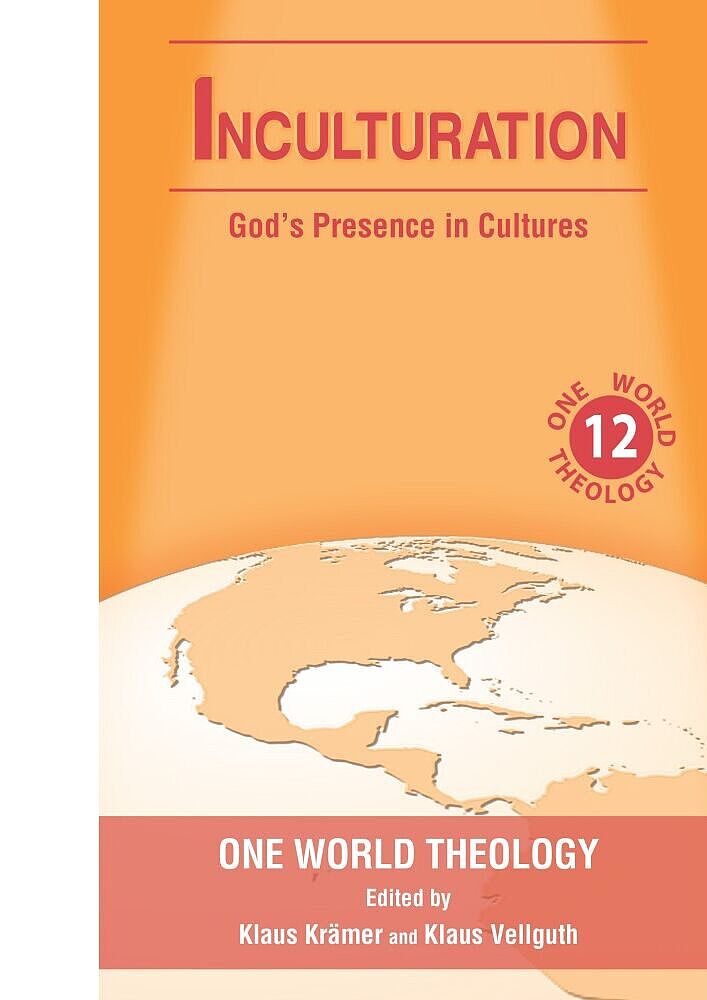
God’s Presence in Cultures
Inculturation is an established term in theological vocabulary. It seeks to ascertain the relationship between faith, Christianity and the Church, on the one hand, and culture or cultures, on the other. In the present volume authors from different continents and cultures examine various facets of inculturation in five separate chapters.
Order Volume 12:
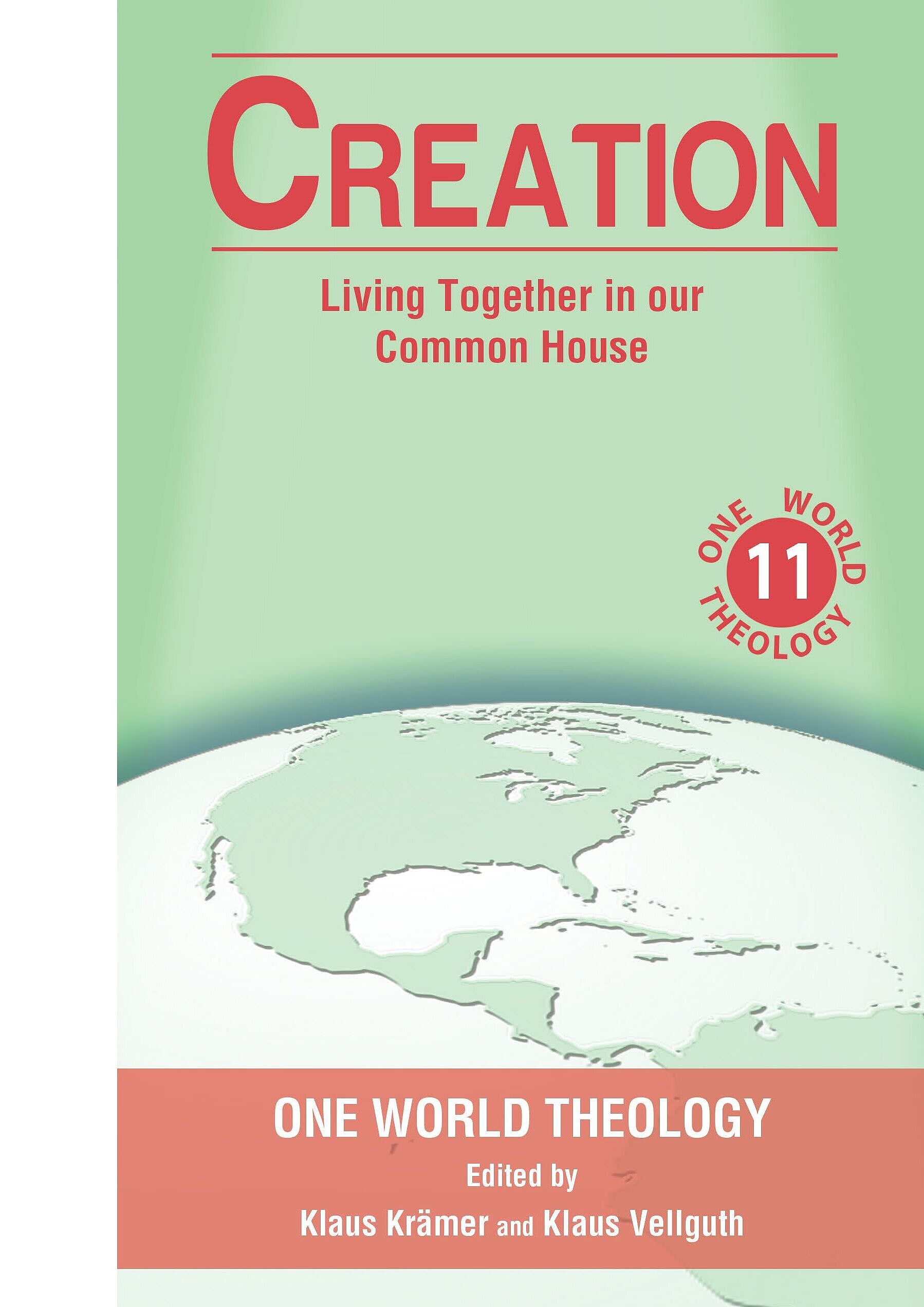
Living together in our Common House
In his encyclical "Laudato si", Pope Francis called for a new dialogue on how people shape the planets future: “We need a conversation which includes everyone, since the environmental challenge we are undergoing, and its human roots, concern and affect us all." (Laudato si ', No. 14)
The diverse aspects of “Spirituality of Creation” and “Righteousness of Creation” are analysed by theologians from Africa, Asia, Latin America and Europe. The authors focus on subjects like “Creation during a crisis”, “Biblical reflection”, “The concept of Creation”, “Answers of the Church in Africa/Asia/Latin America/Europe” and “Creation and Responsibility”.
Order Volume 11:
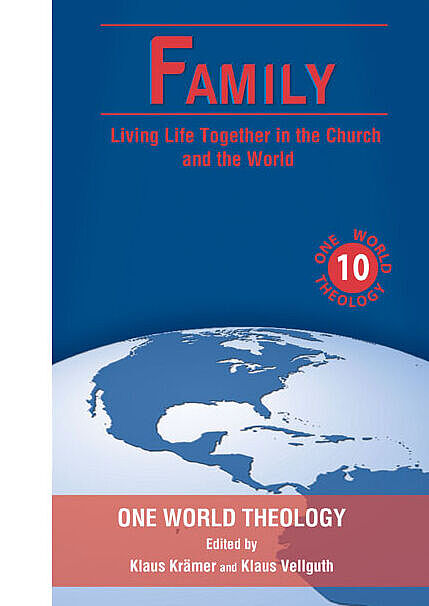
Living Life Together in the Church and the World
This volume in the One World Theology series examines the situation and the challenge(s) confronting families from a global perspective. The authors from Africa, Asia, Latin America and Europe present their personal views and experience of what constitutes family in their respective environments, of the different forms family can take and the transformation processes to which it is subjected, of the challenges facing families, of the relationship between the Church and families, and of the need for a forward-looking family apostolate. Their contributions, coloured as they are by their individual contexts and perspectives, enable this volume in the One World Theology series to function as an intercontinental platform for an exchange of views within the universal Church. The focus here is on an equitable dialogue between and within the local churches.
Order Volume 10:
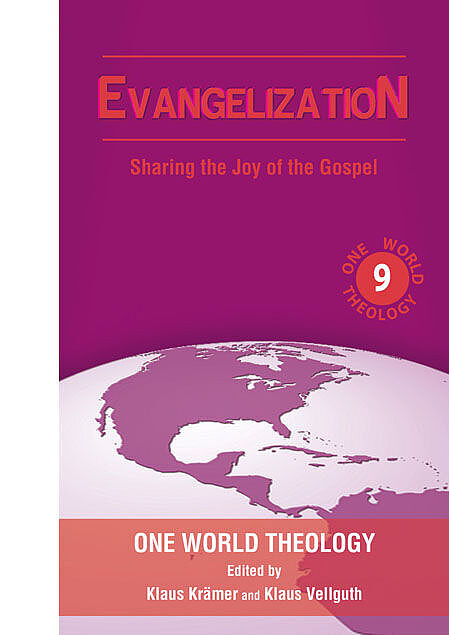
Sharing the Joy of the Gospel
To mark the 50th anniversary of the proclamation of Ad Gentes, the decree on the mission activity of the Church, at the end of the Second Vatican Council on 8 December 1965 this volume in the One World Theology series is devoted to the subject of evangelization. Authors from Africa, Asia, Latin America and Europe, approaching the topic from their own particular perspective, examine the different epochs of evangelization, explore the relationship between mission and evangelization, look at the driving forces for evangelization, address Christian witness in a multi-religious world and discuss attitudes to Christian evangelization.
Order Volume 9:
Discourses on Universality and Inalienability
This volume in the One World Theology series is intended as a forum for an exchange of views within the universal Church in which theologians and philosophers from various countries have been invited to present their views on the concept and interpretation of human dignity from their own regional perspective. This juxtaposition of contributions from different regional contexts makes it clear that contextual references have an influence on the understanding of human dignity. This is readily apparent in the articles addressing human dignity from an anthropological standpoint and approach an understanding of human dignity from within the authors’ own cultural contexts.
Order Volume 8:
Voices of the Universal Church
It is hard to think of any other Church document which has met with such a positive reception in recent years as the Apostolic Exhortation Evangelii Gaudium promulgated by Pope Francis on 24 November 2013. The introduction begins by stating the joy the Gospel brings and goes on in the following five chapters to examine the missionary transformation of the Church, the crisis of communal commitment, the proclamation of the Gospel, the social dimension of evangelization and spirit-filled evangelizers. In the months after the publication of the Apostolic Exhortation it was read all over the world and acknowledged as an outstanding, groundbreaking ecclesiastical document. This worldwide reception is reflected in the present volume in the One World Theology edition, in which theologians from different regional churches contribute articles reviewing the Apostolic Exhortation from their individual perspectives. It is divided into five chapters paralleling the five chapters of Evangelii Gaudium.
Order Volume 7:
Living Faith Together
The Catholic Church in Germany is characterized by the abundance of the universal Church and a commendable open-mindedness in universal Church matters. Evidence of this is provided not least by the work of the various Church aid organisations, the innumerable universal Church activities in the parishes, the work of the Commission for International Church Affairs of the German Bishops’ Conference, the research and teaching carried out at chairs and institutes of missiology and the wide-ranging commitment of players active in the universal Church.
Order Volume 6:
Foundations – Reflections – Models
This fifth volume in the One World Theology series focuses on religious freedom. The fact that three-quarters of the world’s population currently live in 184 countries in which the right to free expression of religion is under threat underlines the importance of the right to religious freedom in all its various aspects. Theologians from different continents have contributed articles to the present volume on this issue, thereby enabling it to serve as a forum for debate within the universal Church.
Order Volume 5:
Rediscovering Faith
The authors’ varying perspectives produce what might be called a "theological kaleidoscope". Their thoughts complement each other in a host of different ways as they attempt to find answers to various questions relating to a universal spirituality.
Order Volume 4:
Faith in Action
This third volume in the One World Theology edition examines the importance of diakonia for Christian theology. Keeping up the overall objective of the edition, its purpose is to provide a platform for an exchange of views within the universal Church. Therefore, theologians from different countries have been invited to explore the relationship between charity and theology from their specific regional perspectives.
Order Volume 3:
Fresh Stimulus for a Forward-looking Church
Over a period of several decades Basic Ecclesial Communities/Small Christian Communities have succeeded in changing the countenance of the Church, giving it a human, personal, spiritual and good-neighbourly face. The second volume of the One World Theology edition is devoted to the development of these communities.
Order Volume 2:
Approaches to a Communicative Understanding of Mission
"Mission and Dialogue" is the programmatic title of the first volume in the One World Theology series devoted to missiology and the universal Church. The volumes in the series will provide a platform for an exchange of ideas on theological issues in which representatives of the different continents are invited to express their views on specific topics. The forum aims to foster dialogue between the local churches and contribute to a dialogue among local churches on equal terms.


